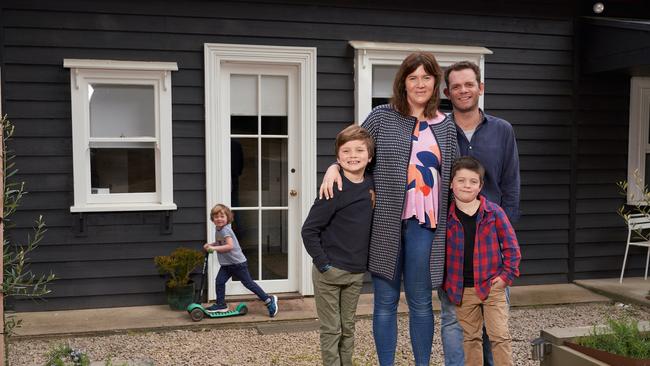Australians happy to forgo upper-class tag
Australians tend to over-estimate other people’s income and underestimate where they sit.

Most well-off Australians consider themselves middle class and many on middle incomes still describe themselves as working class, researchers have found.
The results of two recent studies show Australians are reluctant to claim “upper class” status, with 10 per cent of households earning high incomes but only 2 per cent identifying themselves above middle class.
Middle class calculator: See where you sit on the socio-economic spectrum
At the other end, while fewer than one in three people in Australia are considered “poor” or on “lower incomes” among developed nations, 41 per cent of people claim working-class status.
“This disconnect at the top end is partly explained by the fact that Australians tend to overestimate other people’s income and underestimate where they sit on the socio-economic spectrum,” ANU social researcher Nicholas Biddle told The Weekend Australian.
“And there’s a social layer, of course. In Australia, people are historically unwilling to identify as upper class. People in other countries are certainly more willing to identify in that top echelon,” he said.
Dr Biddle surveyed 1200 Australians on self-assessed class, finding 57 per cent of Australians identify as middle class, 41 per cent as working class and just 2 per cent as upper class.
An OECD report “Under Pressure: The Squeezed Middle Class”, published in April, finds 10 per cent of Australians were on “upper incomes”, 58 per cent on “middle incomes”, with 32 per cent below. Middle income in Australia is after-tax income between $33,000-$88,700 for a single, and $66,600-$177,400 for a couple with two children.
Victorian couple Rob and Kate Cooper earn towards the top end of this middle-income range, but Ms Cooper said the family had to keep track of every dollar.
“If you were to look at our families and the education we had, we’d be upper middle class … we have a beautiful house and two cars. We have a good life but we’re by no means extravagant,” Ms Cooper, 38, said.
“We don’t holiday or do anything like that,” she said.
Ms Cooper runs a network marketing business and also works part-time as a teacher. Her husband, 42, works in real estate, and together they make extra cash by running an Airbnb property.
“We certainly don’t live outside of our means and we are both working really hard,” she said.
Ms Cooper said childcare fees, bills and the cost of feeding Ned, 8, George, 6, and Humphrey, 4, quickly gobbled up the household’s cash.
“When our middle son started prep, we had all these big plans to save that money for a holiday,” she said. “But very quickly it was chewed up by electricity, phones and other household expenses.”
Social policy researcher Peter Whiteford from the ANU Crawford School of Public Policy said while many factors played into perceptions of class, including work type and family history, income was part of the story.
“There are a lot of reasons why people don’t feel as wealthy as they are, some of which are real and some are perception,” Professor Whiteford said. “Housing costs figure large in people’s minds. And childcare is expensive, even with subsidies. Some might include private education expenses. It can all make you feel like you don’t have money for other things.”
Professor Whiteford said the OECD report revealed the economic influence of the middle class and its role as the “centre of economic gravity” had weakened. “The report shows the decline in middle skill jobs was faster in Australia than in most OECD countries between the 1990s and 2015.”
Dr Biddle said class identification in Australia was also affected, naturally, by human and cultural factors such as education, family history and a social network. “There is a significant proportion of people on middle incomes who identify as working class in Australia. Class identity can be a product of where you’ve been as much as where you are.”
Imogen Randell, chief executive of Quantum Market Research, a consumer research and cultural trends agency, said Australians felt safest being in the middle of their tribe, and didn’t like to stand out.



To join the conversation, please log in. Don't have an account? Register
Join the conversation, you are commenting as Logout